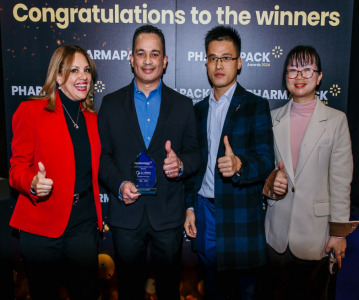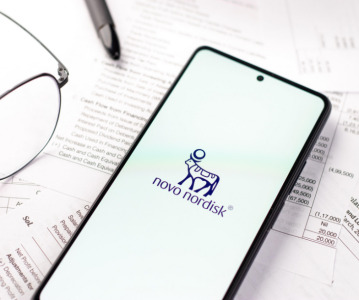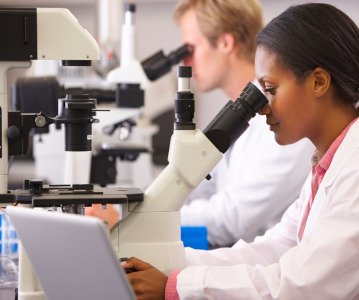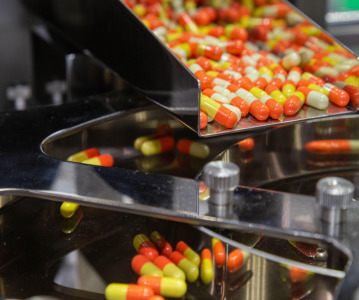Tech Transfer: 9th BioVaria to take place in Munich on 17 May 2016
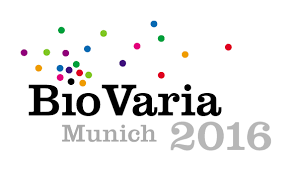
Ascenion unveils technology highlights: New approaches for the treatment of neurodegenerative disorders and glioblastoma.
On 17 May 2016, dealmakers and investors from the international biopharmaceutical industry will come together in Munich with Europe’s leading life-science researchers, entrepreneurs and technology transfer professionals to initiate partnerships for the development of high-potential academic projects. Ascenion and 12 further technology transfer organisations from across Europe will present a total of 40 peer-selected technologies, including innovative diagnostic and therapeutic approaches, as well as platform technologies, originating from 32 research institutes and universities in 8 European nations. In addition, BioVaria’s Spin-off Panel will feature 8 of Europe’s most promising spin-offs.
Ascenion will present a total of five projects, including an innovative approach for the treatment of neurodegenerative diseases originating from the German Center for Neurodegenerative Diseases (DZNE) and a radioimmunotherapy for the treatment of glioblastoma currently being developed by the Helmholtz Zentrum München in close collaboration with a group of university clinics.
The first project targets the PERK pathway that was shown to be relevant in the development of tauopathies, i.e., neurodegenerative diseases characterised by the pathological aggregation of tau protein (tau tangles) in neurons of the CNS. While most approaches in this field aim to inhibit PERK, the DZNE team is pioneering the strategy of activating it. In relevant in vivo models, this has proved highly promising: an orally given PERK activator led to reduced tau pathology, reduced dendritic spine loss and motor neuron loss, and improved memory and locomotor function.
The second project builds on positive results obtained with an inhibitory anti-CAXII antibody in xenograft tumour models demonstrating its capacity to reduce tumour size and growth. CAXII is an enzyme which is expressed to 100% on glioblastomas but not on healthy brain tissue. Using translational grants, researchers and clinicians are now working together to increase the efficacy of the approach by conjugating a Fab-fragment of the antibody to a radionuclide and advancing the conjugate to clinical stage. A GMP process for the production of CAXII-specific Fabs linked with lutetium-177 is currently under development.
Further BioVaria projects presented by Ascenion are
The proven BioVaria format with its short presentations, all-day poster exhibition and interactive Spin-off Panel provides an unprecedented density of life-science innovations in just one day. At the same time, it allows plenty of opportunity for individual discussions with scientists and their technology transfer representatives.
Related News
-
News Pharmapack Awards 2024 Patient-Centric Design Award Winner – Dr Ferrer BioPharma
The 2024 Pharmapack Awards celebrated the best in innovation and design for the pharmaceutical packaging and drug delivery industry on January 24, 2024. -
News Women in Pharma: Minding the Gap at Pharmapack 2024
2024 marks the first year Pharmapack will host a Diversity track dedicated to bridging the gap within the pharmaceutical packaging and drug delivery sector. The track includes a panel discussion on 'Enabling Diversity in the Workplace,' focused... -
News Pharmapack Awards 2024 - Celebrating Packaging and Drug Delivery Innovation
The 2024 Pharmapack Innovation Awards ceremony celebrated the best in pharmaceutical packaging and drug delivery innovation at all levels. The awards were held on January 24, 2024 at the Paris Expo Porte de Versailles. -
News 2024 Pharma Industry Trends Outlook: Collaboration, Market Maturity, and Digital Futures
The annual CPHI Online 2024 Pharma Trends Outlook, in partnership with Arvato Systems, identifies 12 key industry trends shaping the life sciences industry in the coming year. -
News New Novo Nordisk AI hub for drug discovery to open in London, UK
Danish pharmaceutical giant Novo Nordisk will be opening an AI-based research facility in the heart of London to advance drug discovery operations. -
News BioNTech to begin mRNA vaccine manufacturing in Rwanda by 2025
German biotechnology company BioNTech has stated their intentions to begin production at their mRNA vaccine factory in Rwanda by 2025, which will mark the first foreign mRNA vaccine manufacturing site on the continent of Africa. -
News Women in Pharma: Looking back on 2023 and moving forward to 2024
In this monthly series, we interview women from across the pharmaceutical industry and supply chain to discuss the importance of gender diversity in healthcare, the workplace, and beyond. -
News CPHI Barcelona 2023: Partnering for Success – Managing Outsourcing Relationships to Optimise Manufacturing Operations
During CPHI Barcelona 2023, insightful content sessions offered attendees the chance to explore trending topics with expert speakers and panellists. Here, we summarise what the pharma industry and supply chain are talking about the most.
Position your company at the heart of the global Pharma industry with a CPHI Online membership
-
Your products and solutions visible to thousands of visitors within the largest Pharma marketplace
-
Generate high-quality, engaged leads for your business, all year round
-
Promote your business as the industry’s thought-leader by hosting your reports, brochures and videos within your profile
-
Your company’s profile boosted at all participating CPHI events
-
An easy-to-use platform with a detailed dashboard showing your leads and performance
